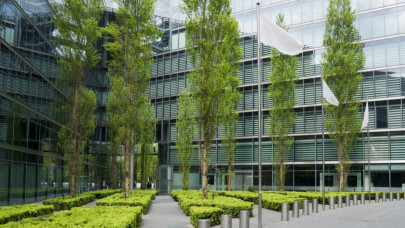Experts at both firms emphasized that ESG compliance should be measured over the whole life cycle of the buildings, starting from planning and including construction, energy consumption and fitting into the local physical and social environment.
"There will be a turning point in the judicial system of Hungary if owners will have to comply with EU rules concerning ESG and at the same time get a whole range of encouragement. This means that international green certificates must be obtained for properties and energy use should rely mostly on renewable sources", Benedek Kovács partner of Baker McKenzie said.
At the moment there is no legal duty on investors and developers to erect buildings with green features exclusively. There are however two planned groups of regulations which contain some elements of those. One is about projects funded by the state and it is putting some green conditions. The other one is about rules for the construction industry. A green card for buildings is to be introduced which will give way to a standardized green certification system in the country.
Áron Horváth, Head of Sustainability at CBRE added: "EU rules are clear in this field and point to a single goal: reflect these aspects in the financial results of the industry. Investors are increasingly expected to finance sustainable projects. To make the right decisions they will appreciate very much if they are explicitly informed about these details".
Chartered surveyors of properties try to identify factors relevant to ESG. These factors include:
- availability of a green certificate
- availability of any other type of certificate
- energy efficiency
- the type of energy used (classic or renewable sources)
According to Mr Horváth, rising demand for sustainable buildings does not justify a necessary premium price for modern buildings. On the contrary, the so-called brown discount is amounting meaning value of properties without any sign of sustainability decreases sharply. However, these properties attract investors too but those people are fewer and with a different approach. Margaréta Mészáros, Head of Valuation at CBRE added: owners of energy-efficient commercial buildings with much better technical conditions have every right to ask for higher rents.












